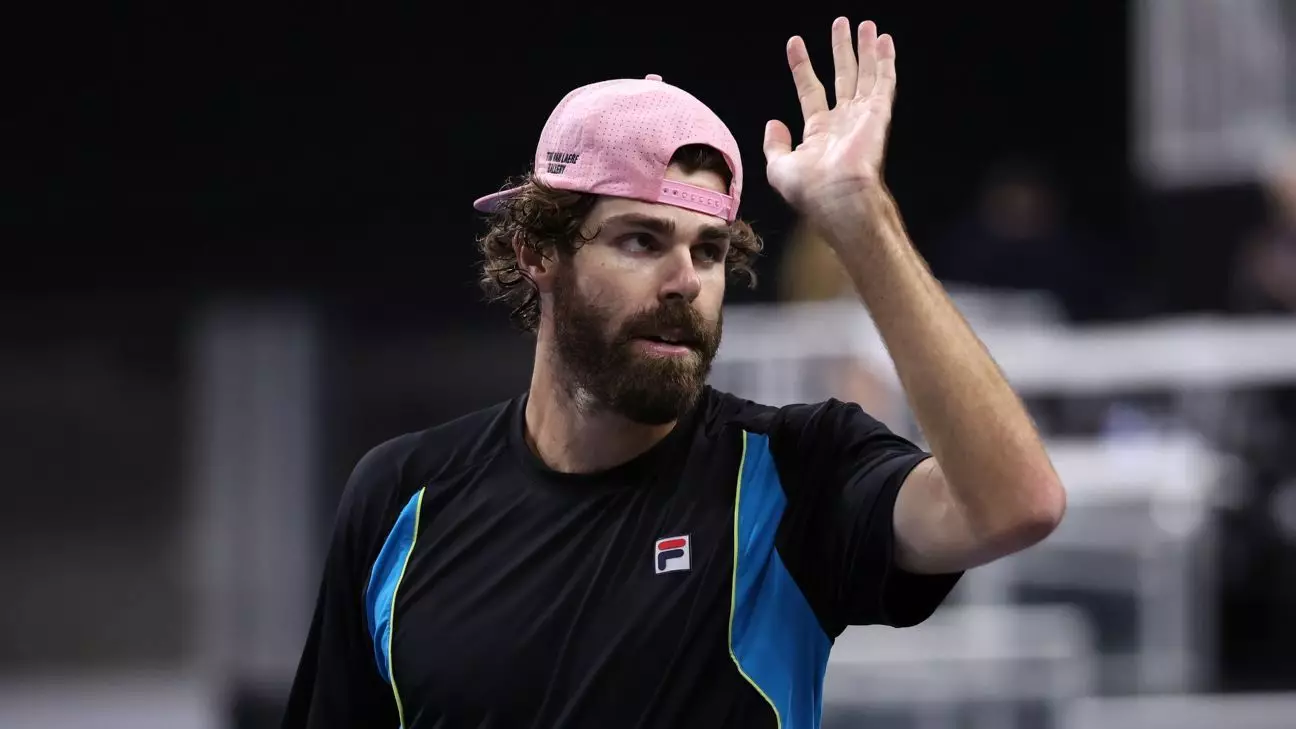In the high-stakes atmosphere of the Dallas Open, a seemingly trivial incident escalated into a heated confrontation between player Reilly Opelka and chair umpire Greg Allensworth. Opelka, who was in the midst of a crucial match against Cameron Norrie, confronted a fan he felt was intentionally coughing to disrupt his serve. In an unexpected departure from composure, Opelka stopped mid-serve at a critical 30-30 juncture to address the spectator directly, publicly questioning the intent behind the cough and demanding they leave. This moment, marked by an outburst laden with expletives, led Allensworth to penalize Opelka with a code violation, indicating a breakdown in umpire-player relations that highlights broader issues within sports officiating.
The ATP rulebook is clear; a first-time offense results in a warning, while a second offense incurs a point penalty. Opelka’s situation raises pertinent questions about the appropriateness of Allensworth’s actions. While players are indeed held to high standards of behavior, the emotional pressures of competition must also be acknowledged. Opelka argued vehemently that Allensworth’s decision not only misinterpreted the situation but also endangered the integrity of the match itself. His remarks, calling Allensworth the “worst ref on the ATP,” signal a deep frustration fueled by the sense that his hard work was undermined by officiating that failed to grasp the simplicity of a competitive environment.
Opelka’s frustrations are emblematic of a larger conundrum in sports—how much power should players have when they perceive unfair judgment calls? His assertion that he had to take matters into his own hands to advocate for himself raises the question of whether players should be allowed more leeway to manage disruptions during matches. This controversy encapsulates the often contentious dynamic between players and officials, particularly in a sport where tension and mental fortitude are paramount. Opelka’s comments about taking real actionable steps to penalize Allensworth reflect an underlying sentiment: players want a level playing field—not just against opponents, but also in their dealings with officiating authorities.
Looking beyond this single incident, the call for disciplinary action against Allensworth opens a Pandora’s box regarding how officiating is managed within the ATP. Opelka’s articulated desire for Allensworth to face consequences raises critical discussions on accountability in officiating—especially when one individual’s decisions can dramatically alter a player’s career trajectory. Furthermore, the looming threat of heavy fines for Opelka, estimated at $5,000 for each violation, puts him in the position of risking his reputation and finances for defending himself.
While Opelka emerged victorious on the court, the fallout from this incident serves as a reminder of the multifaceted challenges players face, both in competition and in dealing with the frameworks established for officiating. As the ATP continues to navigate these intricate dynamics, the call for systemic changes in how umpires are held accountable will likely resonate with players and fans alike. Players deserve not only fair treatment but also respect in preserving the integrity of the sport they dedicate their lives to.


Leave a Reply